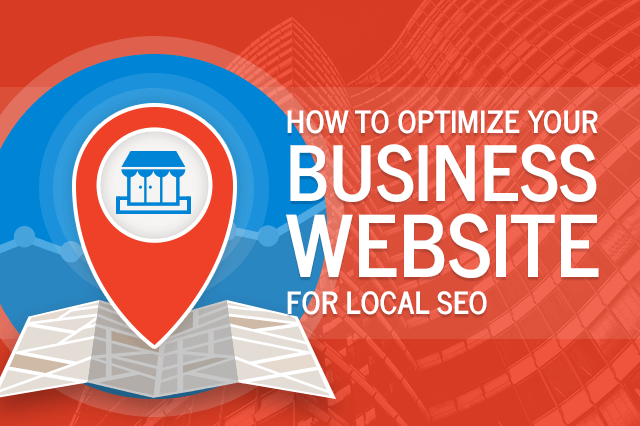How to Optimize Your Business Website for Local SEO
 October 31, 2018 | By Ilfusion Team
October 31, 2018 | By Ilfusion Team
Internet users are getting more savvy as modern technology has evolved over the years. Where once consumers looked for global information on the Internet, they are now preferring more personalized and localized results. Consumers aim for greater accessibility and convenience; the easier and faster they can get the information they need, the better.
Statistics show that 46% of all searches on Google are seeking local information and that 58% of consumers search for local information every day. This proves how heavily consumers rely on the Internet to search for relevant information, particularly on businesses that they can easily visit near where they live. And as a result, local SEO is on the rise.
Why Your Business Needs Local SEO
While local searches may yield lower search volumes, what’s most important is search intent and attracting users who are ready and eager to convert. Studies have shown that 76% of consumers who search for local business information on their smartphones visit the physical store the same day they searched online, and 28% of these local searches resulted in a purchase.
Google has also been working towards producing more localized search results with their Possum algorithm update. This update, although unconfirmed, favors businesses with a local listing in relation to its proximity to the user conducting the web search. Before, search engines would yield the same results for people running the same search terms in the United States as they would in another part of the world. Aside from location, Google is also considering your personal preferences and search intent in localizing search results.
All of these imply that local SEO is essential to your business’ digital marketing strategy, and that it has a great impact in boosting your SEO ranking.
Tips on Optimizing Your Business Website for Local SEO
With local search optimization, the key to ranking well is using the most relevant local keywords so that your target audience can easily discover your content. To help you get started, here are tips on how to optimize your business website for local SEO:
1. Identify local keywords
The first step in locally optimizing your business website is to identify commonly used phrases that people are more likely to use when searching for your business. Compile a list of keywords or phrases that people use when describing your products or services, and are relevant to your industry.
For example, if you’re a digital marketing agency, your list may contain terms such as digital marketing, advertising agency, SEO specialist, web design, or graphic designers. These terms should then be paired with the location of your business; for example, digital marketing agency Fort Worth.
You can also use tools such as Google Ads Keyword Tool and Keyword Tool to find relevant local keywords. To see which search queries your current and past web visitors have used to find your website, you can use the Google Search Console Search Analytics Tool.
2. Optimize your web pages
Once you’ve identified which local keywords to use, make the necessary changes to your existing web pages to optimize them. The three key areas you need to optimize are the following:
- Page Titles and Descriptions – Your page titles and descriptions should include the name of your business location, along with the description of the service or product you offer. Keep page titles within 70 characters or less, and page descriptions a maximum of 156 characters.
- Contact Page – Include your business name, address, and other contact information (i.e., email address and phone number), as well as embedding a map, in your contact page. If you want to add your contact information on other appropriate pages, ensure that these are consistent to avoid confusion.
- Blog – If your business website has a blog, it’s one of the best places to optimize for local SEO. When creating local content, it’s essential to include local keywords wherever appropriate. This includes your URL, title tags, meta description, and of course, the body of your content.
3. Leverage local directories and social media
Local directories and social media prove to be effective in driving local traffic to your business website. Consider listing your business on online business directories such as Yelp, TripAdvisor, Yellow Pages, Angie’s List, Thumbtack, Bing Places for Business, Yahoo! Small Business, and most importantly, Google My Business.
It’s also important to leverage social media sites to promote your local business. Facebook, Twitter, and Instagram are always good places to start, and most particularly location-based social media platforms such as Foursquare and Swarm.
The crucial thing to remember is to maintain accurate and consistent business information throughout all your local directory and social media listings. It’s also equally important to manage your reputation on review sites such as Yelp and TripAdvisor, as well as the review section on Facebook business pages.
In Conclusion
Targeting local audiences not only helps in improving your business website’s SEO ranking; it also encourages more conversions and more loyal customers. If you want to know more about SEO, or if you need help with any of your digital marketing needs, give us a call at 888-420-5115, or send us an email to cr******@******on.com.

